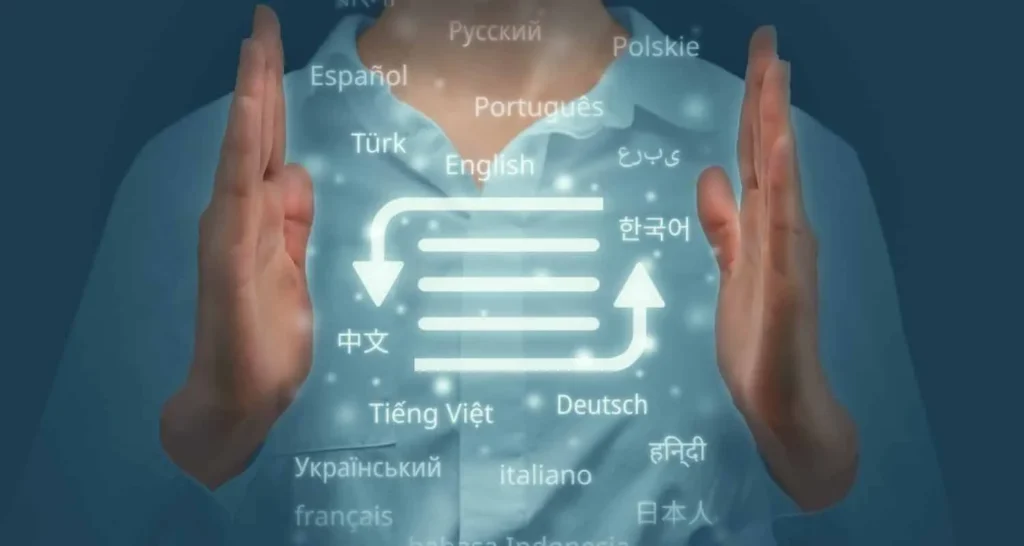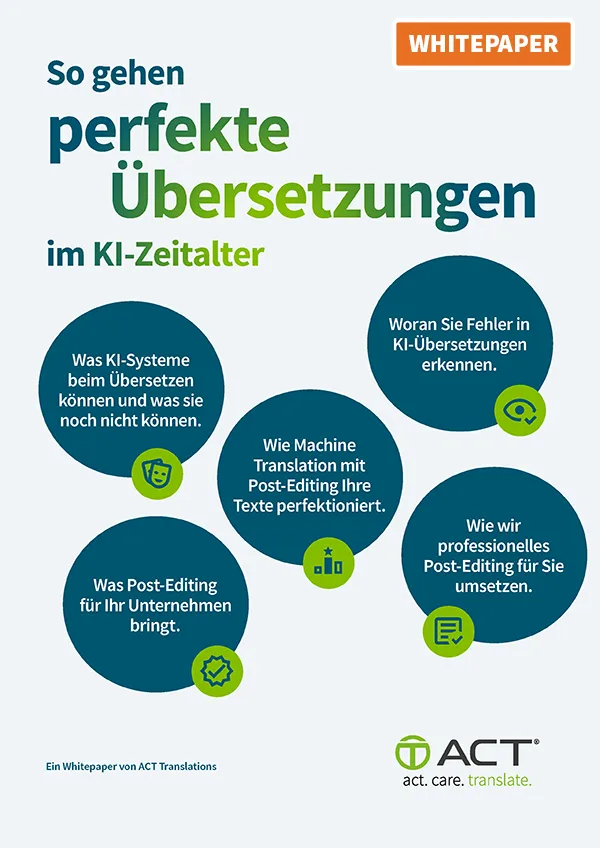Translating medical texts comes with a great deal of professional responsibility. Besides the ethical responsibility, this task also carries a legal dimension: Incorrect or ambiguous translations can have highly unpleasant legal consequences for clients and translators alike.
How just a few words caused immense harm. In 2007, a Berlin hospital discovered that 47 knee joint prostheses had been implanted incorrectly. The fatal error was triggered by the English labeling on the prostheses, which was misinterpreted by hospital staff. The prostheses were supposed to be attached with bone cement, but somehow they ended up in the compartment for cementless prostheses. This oversight resulted in substantial compensation for pain and suffering.
It goes without saying that translating medical texts into a target language entails a unique responsibility. After all, it is intended to ensure people’s well-being and health, and in some cases even their survival. The complex terminology requires professional translation. This is true for all types of medical texts, but especially for medical findings, clinical studies, medical reports, package inserts, and manuals for medical devices. Obviously, incorrect or imprecise translations can have unpleasant consequences in all industries. However, in the field of medicine and pharmacy, the legal implications can quickly become very serious. A concise overview of the most important legal issues that apply to medical translations.
Civil law and medicine: When poor medical translations raise liability issues
The question of when a translation is actually “correct” is open to debate. In practice, the issue only becomes relevant when the translated version of a text leads to repercussions. At the civil law level, the primary applicable section is § 823 of the German Civil Code (BGB), which addresses liability for damages. (Annotation: Since similar national legislation applies in all EU member states, we are referring to German and EU law here. This also applies to the subsequent text.)
§ 823 (1) states: “Anyone who intentionally or negligently causes unlawful harm to another person’s life, body, health, freedom, property, or any other right is required to compensate the other party for the resulting damage.” This law affects translators as well as their clients. Translators are liable under contract law for defects that jeopardize the contractually agreed outcome. Clients, in turn, are required to ensure reliable, high-quality translations to the best of their ability. Obviously, this rules out entrusting the translation to employees who are somewhat proficient in the language or even to AI translation services.
Study: Incorrect terminology in everyday life
Failure to comply with this obligation could result in a breach of tort law. In 2010, a US study came to a remarkable conclusion in this regard: The authors examined translations of prescriptions for prescription-based drugs from English into Spanish, which is a necessary routine in many parts of the US. According to the study, 86 percent of pharmacies used a computer program for the translation, 11 percent used their own employees, and only 3 percent used professional medical translators. The result was a plethora of errors, spelling mistakes, and incorrect wording. The study authors concluded that, in these cases, improperly administered prescription drugs pose a health risk rather than a health benefit to patients, which could lead to personal injury or even death.
Under German law, you could also be subject to § 823 BGB, for example, if you have a medical report translated by AI without checking the result or having it professionally reviewed. In the worst-case scenario, in the event of negligent bodily injury or even death pursuant to §§ 229, 222 of the German Penal Code (StGB), you could even face criminal law with all its consequences.
Medical device law: Professional translations as part of the product
The Medical Device Regulation (MDR) and the Medicinal Products Directives are highly relevant at the European level. The MDR stipulates that all medical documents relevant to users and patients must be available in the official language(s) of the country in which the product is offered. Among other things, this applies to labeling, instructions for use and administration, implant cards, and safety-related information. To a certain extent, the MDR is another step by the European Union to define language as an integral part of products—and thus to elevate its significance.
An interesting side note: The MDR also stipulates that “the information on the labeling (…) must be indelible, legible, and clearly understandable to the intended user or patient.” In other words, a precise translation of the content is not the only thing that matters. It must also be linguistically understandable. The link between language and product means that poor translation quality can jeopardize CE conformity and thus trigger product liability claims.
The EU Medicines Directive (Directive 2001/83/EC) also stipulates that medicinal product information for marketing authorizations and sales in the respective member states must be available in the official language or languages of those respective states.
The GDPR: How translators must handle personal data
Given the sensitivity of the topic, it stands to reason that the General Data Protection Regulation (GDPR) also has a massive impact on medical translations. The highest level of translation accuracy is required whenever personal data is processed. This poses a slew of challenges for translators.
- IT security: Translations must be carried out within a secure IT infrastructure to prevent data leaks. Sometimes, they must even be completed in offline environments. In any case, translators must ensure that only authorized persons have access to this data and that the translations comply with the relevant data protection regulations.
- Privacy by Design: Translation service providers are contractually required to comply with GDPR requirements and maintain confidentiality. This also means that data protection must be integrated into all processes right from the start.
- Compliance: Contracts with translation service providers must contain data protection clauses. Both parties must provide corresponding evidence of compliance with the GDPR.
Accordingly, the General Data Protection Regulation is another good reason for the medical and pharmaceutical industry to be very careful in choosing their translation service providers.
Prevention: Proven expertise, certified medical translations, and professional human translators
Legal problems with medical translations can arise relatively quickly. Luckily, there are proven ways to significantly minimize the risk:
- Careful selection of partners: It is worth investing a little bit of effort in choosing a specialized translation partner. Does the translation agency have certifications such as ISO 9001 and ISO 17100? Are there best practices for professional medical translations? Are there credible recommendations from previous clients?
You can find out everything you need to know about choosing the right translation partner here. - Certifications: When official documents must be submitted to authorities or are otherwise relevant from a legal perspective, it is especially worth investing in a certified translation with a stamp and signature.
- No untested AI tools: As convenient as artificial intelligence may be, the medical field is far too sensitive to rely solely on AI capabilities for an accurate translation of your medical texts.




